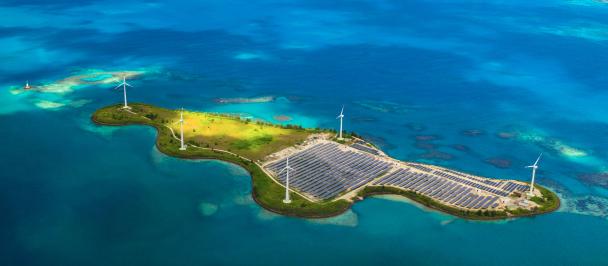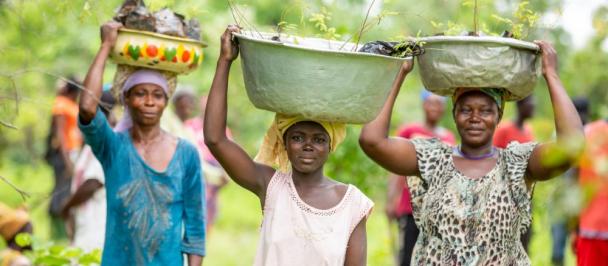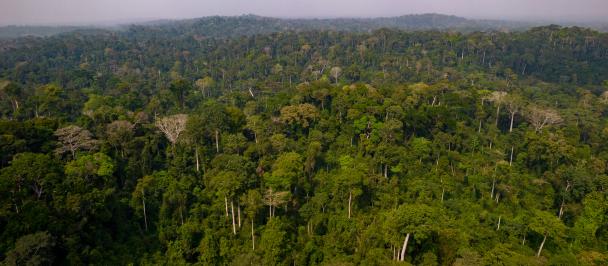Despite unconditional pledges made by governments in their Nationally Determined Contributions (NDCs) under the Paris Agreement, global temperatures are likely to rise between 2.5 and 2.8°C above pre-industrial levels. This substantive gap requires a significant increase in climate ambitions that are linked to the on-the-ground deployment of climate actions.
The required investments for these climate actions far exceed the annual 100 billion USD in climate finance committed for both adaptation and mitigation by developed countries to developing countries from 2020 onwards. This target will only be achieved with significant levels of private finance. However, in most of the United Nations Development Programme’s (UNDP) target countries, barriers abound, which our partnership with the innovative finance vehicle Paris Climate Bond (PCB) means to address. The PCB has been developed by Climate Mundial, a UK based firm established in 2012 as a dedicated climate finance and sustainable development firm.
Climate Mundial’s guiding principles are first, to engage only in business activities that deliver or lead to positive climate and development benefits that are real, verifiable and additional to business as usual; and secondly, to truly respect the principle of real value creation and fair treatment among all stakeholders. These principles reflect mutual objectives with UNDP in pursuing sustainable and transformational climate actions across countries and sectors.
Building on these mutual objectives, UNDP and Climate Mundial collaborate on providing affordable financing for private sector investors and achieving catalytic effects. As such the company will work to structure finance and reduce costs of capital for climate-friendly technologies. Currently, this partnership spans across technologies (renewable energies, climate-smart agriculture, sustainable waste management, climate-friendly technologies for end-users etc.) and regions (the Philippines, The Gambia, Ghana, Kenya etc.), helping private sector actors to access finance and ultimately helping governments to achieve their NDC targets while putting them on low-carbon trajectories.
In the Gambia, Climate Mundial, UNDP and United Nations Capital Development Fund (UNCDF) are joining efforts to develop and then strengthen an Independent Power Producer (IPP) market in a country that has found it difficult to attract private investment in scaled electricity generation infrastructure. This will benefit the country for years to come by reducing the costs for capital for the construction of solar power plants and for guaranteeing payments under Power Purchase Agreements (PPAS) signed with the state-owned utility.
Other programmes and projects, supported under this new partnership, utilize carbon finance through Article 6's mechanisms of the Paris Agreement. Cash flows that will be generated from payments against mitigation outcomes will form sufficient collateral to allow governmental partners to raise funds and finance the programmes and projects. These funds will be sought through carbon receivable finance or prepayments for the tradable emission units. The innovative PCB concept will be deployed to contribute finance to scale-up the programmes.
Given the strategic nature of the partnership, the framework agreement will allow UNDP to collaborate with Climate Mundial as an arranger of finance for a pipeline of investment opportunities that originate from the policies under the countries’ NDCs that UNDP is supporting.
Such strategic partnerships between a UN agency and a private sector financial institution that share common objectives and work towards a common goal of a low carbon society, can build and strengthen local finance capacity and lead to scaling-up investments to accelerate NDC implementation. Ultimately, this will lead to more mitigation outcomes towards countries’ unconditional mitigation pledges under the Paris Agreement.
Through this new partnership, UNDP will be able to support NDC actions form its diverse and growing programme and project portfolio across countries and regions and address critical market failures in an efficient but transparent manner, going beyond total reliance on publicly funded grants and leverage private sector investment at scale.
---
The period from now until 2020 is critical to the success of the Paris Agreement. For UNDP, UN partners and the wider international community, the mission is clear: to push for countries, communities and the private sector to scale up ambition. By 2020, we want to see accelerated action on the climate targets — the Nationally Determined Contributions (NDCs) — of the Paris Agreement. Read more on: Climate 2020 — All In

 Locations
Locations




